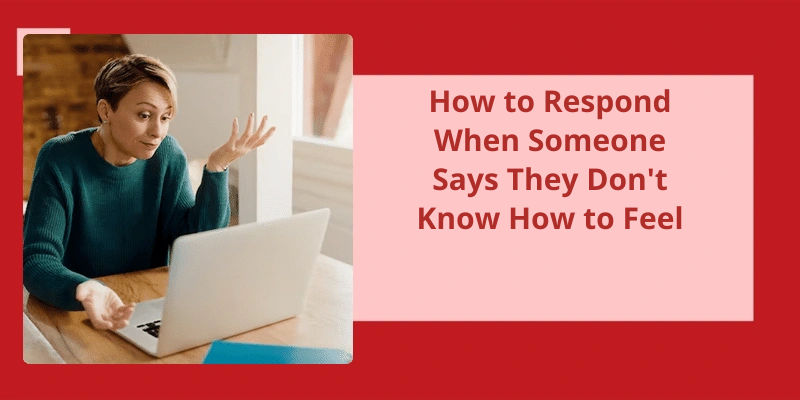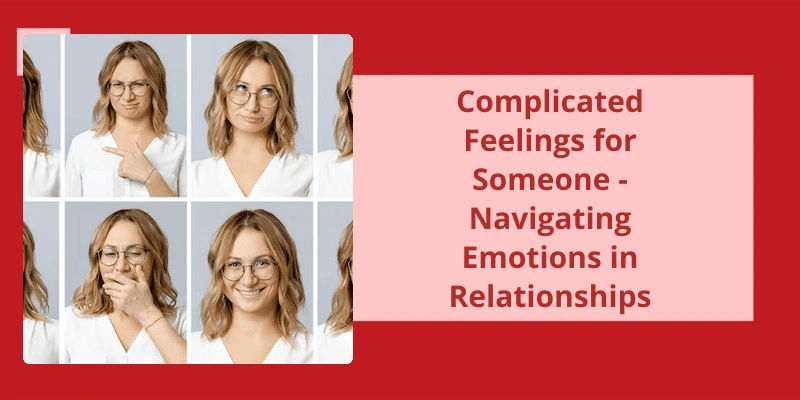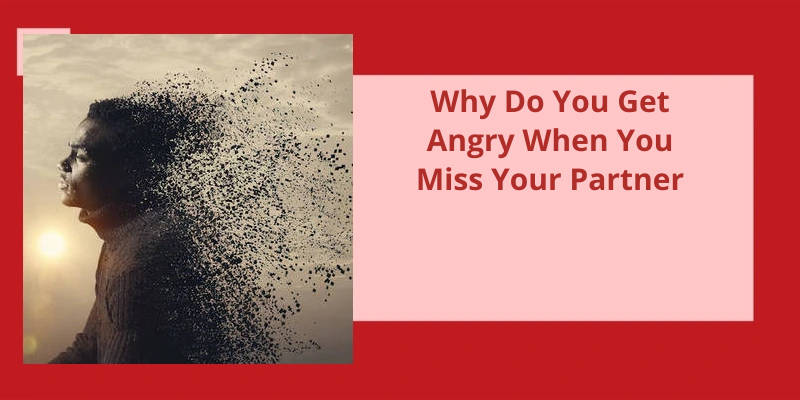Human beings are emotional creatures who often find themselves facing complex psychological dilemmas. One such dilemma that often plagues individuals is the decision to hide their feelings for someone. While it may seem like a simple matter of personal preference, psychologists have delved deeper into the repercussions of suppressing emotions and have discovered that the longer one hides their feelings for someone, the more intense their eventual feelings towards that person become. This insight, based on years of research and analysis, highlights the power of human emotions and the importance of understanding and addressing them in order to maintain healthy relationships. The field of psychology continues to explore the nuances of human emotions and the impact they’ve on our well-being, especially regarding interpersonal relationships.
Is It Bad to Hide Your Feelings for Someone?
Furthermore, hiding feelings can also negatively affect relationships with others. When we don’t express ourselves, our loved ones may feel confused or disconnected from us, which can lead to miscommunications or conflicts. It may also lead to a lack of trust and cause others to distance themselves from us.
Additionally, holding back our emotions can prevent us from growing and learning from our experiences. Emotions serve as signals that help us understand and learn from our surroundings. By hiding them, we may miss valuable opportunities to grow and develop as individuals.
Moreover, hiding feelings can also lead to self-doubt and a lack of self-confidence. When we continuously suppress our emotions, we may begin to question our own worth or become uncertain about our abilities to handle situations. This can create a cycle of negative thinking, further perpetuating our inability to express ourselves.
Finally, hiding our feelings can prevent us from experiencing the positive aspects of human connection. By expressing our emotions, we allow others to understand and connect with us in meaningful ways. This can lead to the development of deep and fulfilling relationships. Additionally, by acknowledging and processing our emotions, we can experience a greater sense of self-awareness and emotional intelligence.
The Benefits of Practicing Mindfulness and Emotional Regulation Techniques
- Reduced stress and anxiety levels
- Better control over emotional responses
- Improved focus and concentration
- Enhanced self-awareness
- Increase in positive emotions
- Improved relationships and communication skills
- Better sleep and overall well-being
Suppressing romantic feelings can seem like the easier and sometimes safer option, but it can often lead to negative consequences in our relationships. This can include difficulty in forming meaningful connections and avoidance behaviors that can get in the way of developing deep emotional intimacy with our partners. It’s important to explore and acknowledge these feelings in a healthy way to avoid long-term relationship issues.
Is It Bad to Suppress Romantic Feelings?
Suppressing romantic feelings can be detrimental to your emotional well-being, as it may lead to a sense of loneliness and helplessness. However, by doing so, they may miss out on opportunities for love and connection that could be the key to a happy and fulfilling life.
By denying yourself the opportunity to express your emotions and act on your desires, you may predispose yourself to feelings of isolation and disconnection. This, in turn, can undermine your social and emotional growth and prevent you from experiencing the joys of a healthy romantic relationship.
Bottling up your emotions can cause them to build up within you, leading to a range of negative emotions, including anxiety, depression, and anger. This can further hinder your ability to form meaningful connections with others, as these negative emotions may make you more guarded and closed off.
The more you suppress your feelings, the more disconnected you may feel from those around you, leading to even more repression and isolation.
However, it’s essential to recognize the potential risks and consequences of repressing your emotions, particularly in your romantic relationships. By acknowledging your feelings and embracing vulnerability, you may be able to form deeper connections and achieve greater emotional fulfillment in all aspects of your life.
The Impact of Past Traumas or Negative Experiences on a Person’s Ability to Express and Process Romantic Feelings
Negative experiences and past traumas can have an impact on how a person is able to express and process romantic feelings. This can make it difficult for them to form and maintain healthy relationships.
Source: What happens if you suppress your love for someone deep …
If you relate to any of the above experiences, you may be suppressing your feelings for someone. Emotional repression can cause a range of psychological and physical issues, so it’s important to recognize and address it. In this article, we’ll talk about some common signs of emotional repression and provide tips for how to become more in touch with your feelings.
How to Know if You Are Suppressing Your Feelings for Someone?
Suppressing our feelings is quite common, especially when it comes to someone we care about deeply. It can be challenging to know whether you’re hiding your emotions, but there are some signs to look out for. One of the classic symptoms of emotional repression is feeling numb or blank, like you’re disconnected from your emotions. You might struggle to feel anything at all towards the person in question, unable to summon up any excitement, happiness, or sadness. This is a clear sign that you’re suppressing your emotions, but it’s not always easy to notice it in the moment.
Another way to recognize emotional repression is by looking at your overall mental state. Do you feel nervous, low, or stressed most of the time, even if there doesn’t seem to be a specific reason? This kind of underlying anxiety often points to repressed emotions that are trying to push their way to the surface, but you may not even realize it. You might also find that you’ve a tendency to forget things, or struggle to focus on important tasks, which can be a symptom of emotional overwhelm.
If you find yourself feeling uneasy or uncomfortable when other people express their feelings, this is another clear sign of emotional repression. When we’re suppressing our emotions for someone, hearing about other peoples experiences can be triggering. You might struggle to empathize with them fully, or feel like their emotions are a threat to your own carefully managed feelings towards the person in question. This can lead to a sense of isolation, making it even harder to admit to ourselves what we’re really feeling.
Recognizing emotional repression is an essential first step towards healing, but it can be challenging to know how to move forward. One helpful approach is to practice mindfulness, allowing yourself to tune in to your emotions and sensations without judgment. This can help you to notice when you’re suppressing your feelings and work towards processing them in a healthy way. It’s also important to talk to people you trust about what you’re experiencing, whether thats a therapist or a close friend. Sharing your emotions with others can be scary, but it’s a crucial part of the healing process.
Overall, if you find yourself struggling with these symptoms, it may be worth taking some time to reflect on your emotions. Emotional repression is a common coping mechanism, but it can be damaging when it goes unchecked. By recognizing your feelings for what they are, practicing self-compassion, and leaning on your support system, you can work towards processing your emotions in a healthier, more open way. It’s never easy to face our emotions head-on, but the rewards are well worth the effort.
Exploring the Reasons Behind Why Someone Might Be Suppressing Their Feelings for Someone Else, Including Fear of Rejection, Past Hurts, or Societal Pressure.
Looking at possible explanations for why an individual might be concealing their emotions for another person, which could stem from their apprehension of being rejected, traumatic experiences in the past, or the influence of social norms and expectations.
However, our minds tend to hold onto emotions much longer, allowing them to influence our thoughts and behavior. This can be both beneficial or detrimental, depending on the emotion and how we choose to handle it.
How Long Can You Hold an Emotion?
After the initial 90 seconds of an emotion, what remains is our own thoughts and mental stories that we create and attach to that emotion. When we hold onto an emotion beyond those first initial moments, we’re essentially keeping that emotion alive through our own mental processes rather than it’s biological process. This is why it’s commonly said that we’re in control of our emotions and not the other way around.
Certain triggers or events that provoke a strong emotional response can make it more difficult to let go of those emotions. It’s why people may hold onto grudges or negative feelings towards someone or something for weeks, months, or even years.
In some cases, holding onto an emotion for extended periods of time can lead to physical and mental health problems. Studies have shown that chronic stress and negative emotions can weaken the immune system, increase the risk of heart disease, and cause depression and anxiety.
On the other hand, letting go of emotions quickly and effectively can have numerous benefits. It can improve relationships, reduce stress and anxiety, and promote overall well-being. In fact, many relaxation and meditation techniques are centered around the idea of acknowledging and observing emotions without attaching to them, allowing them to pass through the body naturally without getting caught up in them.
The duration of an emotion may be short-lived, but the impact it can have on our lives can be long-lasting. It’s up to us to decide how we want to react and respond to those emotions, whether it’s holding onto them for an extended period or letting them go and moving on.
Strategies for Letting Go of Emotions Quickly and Effectively, Such as Mindfulness and Meditation Techniques.
This topic discusses methods for quickly and effectively releasing pent-up or intense emotions, such as anxiety, anger, or sadness. Specific strategies mentioned include mindfulness and meditation techniques, which can help individuals become more aware of their thoughts and feelings and learn to manage them in a healthier way.
Conclusion
Psychology has long been interested in the way our emotions and behaviors intersect, particularly when it comes to love and relationships. In recent years, there’s been a growing body of research exploring the impact of hiding one's feelings for someone. What psychologists have discovered is that the longer we keep our emotions hidden, the more intense they can become. This may be due to a combination of factors, including the buildup of tension, anxiety, and anticipation, as well as a heightened sense of longing and desire. Ultimately, what this suggests is that it may be healthier and more authentic to express our feelings openly and honestly, rather than letting them fester and grow in secret. By doing so, we may be able to avoid some of the pitfalls of unrequited love, while also nurturing more genuine and fulfilling relationships with those we care about.






